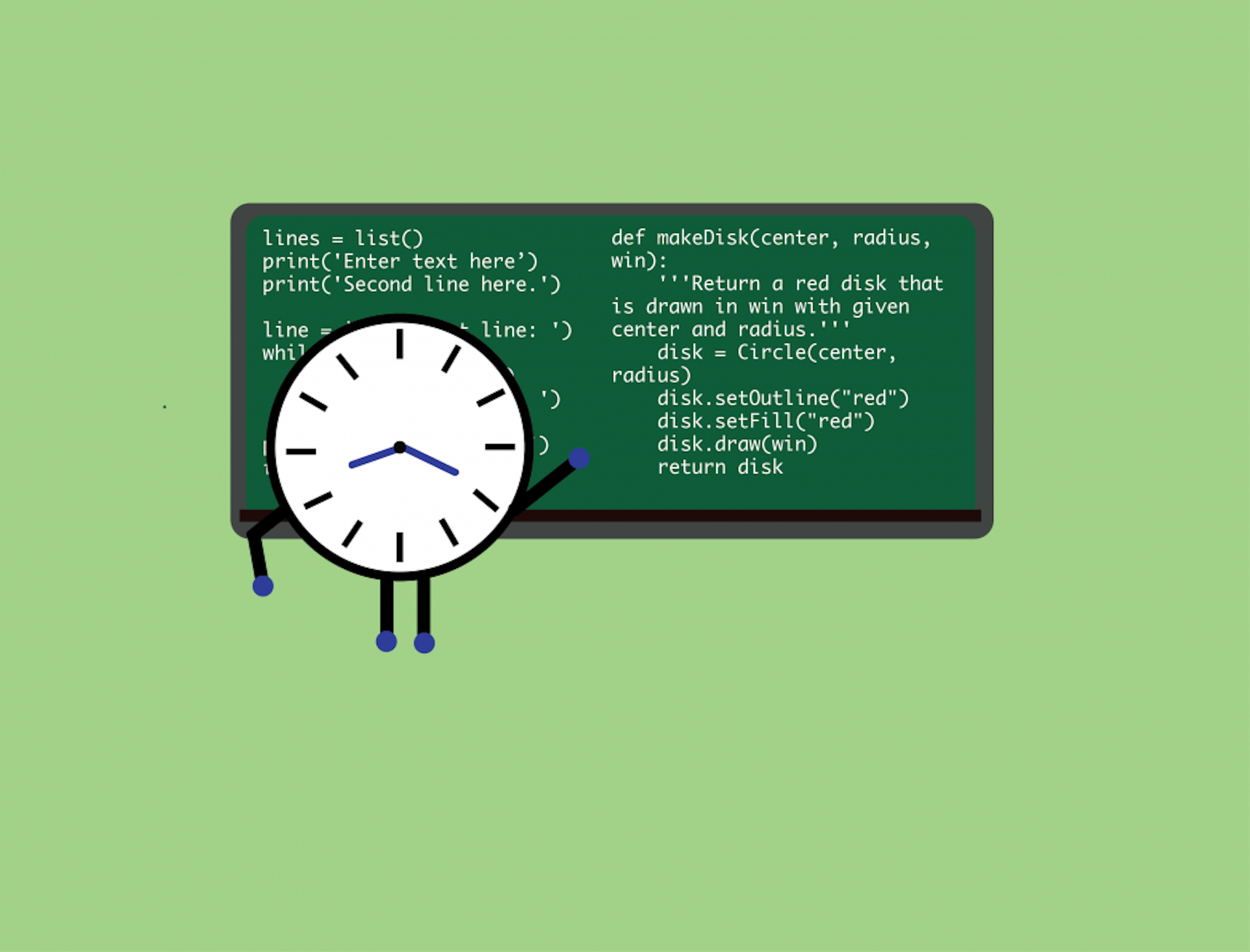Numbers confuse me, science eludes me, but fortunately I possess the “useless” ability to hear the rhythm between words and read too deeply into texts — to transform the female body into a gesture of capitalist resistance, a character’s mixed skin tone into the embodiment of hybridity, a spectral figure into the enduring presence of our past or — if I’m feeling particularly misanthropic — the nonhuman, neoliberal Other.
I have worried, of course, about finding a job, because I presume that not many companies are seeking to hire someone with my qualifications. But I take comfort in knowing that I still have a full three years before the capitalist machine that I have critiqued so fervently in writing subsumes me for a lifetime. In any case, my immediate concern is graduating, for which I need a technology or applied science course, a quantitative and deductive science class, two science courses and a lab. After bemoaning what I like to dub the academic hierarchy (why must I fulfill two science credits but only one literature credit?), I concluded that Computer Science 1, “Introduction to Prograaming and Computation,” was akin to learning a new language and so as close to a humanities class as any STEM course would ever get — except with a little more logic and a lot fewer symbols.
I was wrong.
My slow and painful death began the instant I set foot in the classroom — well, no, the auditorium which I was to call a classroom. Accustomed to classes of 15 students gathered around a table, all united in their collective enthusiasm or hostility toward a text, I stood aghast as a foreign and appalling scene unfolded before my eyes: hundreds of students filed into the auditorium and, as if preconditioned to a mechanical sitting formation, slipped into the rows and columns of their choosing. Where was the book? How would the professor ever learn our names? I voiced my concerns to the student sitting next to me, who merely shrugged and explained that the professor would likely never know us by name. It was an introductory STEM class, after all. Oh. This was my cue to seek refuge in the non-recording option, but I was young and naive and ready for the challenge, and thus convinced myself that the class would improve once the content rolled in.
Wrong, again. By the second lecture I found myself becoming more and more aware of things that had previously eluded me.
The clock on the wall. An entity of its own. I have never been aware of time passing, but right then, confused as I was by the while-loops and if-statements on the screen, my eyes became fixated on the clock. It started off like most relationships do, a nod of approval, a glance every now and then, but these glances soon matured into full, uninterrupted stares. By the second week, the ticking that only I could hear had overpowered my professor’s voice, and the hundreds of nameless heads had faded into the background as if to set the stage for a love story between my eyes and the clock. Perhaps the clock had found pleasure in this newfound attention and, wanting to keep my gaze as it was, frozen and suspended, slowed down its beat: the ticking grew slower, the clock hands inched forward. Sometime during my love-struck stupor, it hit me: I was indebted to time. My passion for language was characterized first and foremost by the absence of time, but this simple indifference towards time had soon escalated into full-blown hatred, for time was, in my eyes, a construct, an attempt by the dominant culture to establish its notions of synchronicity as truth. Yet here I was, anchoring my sense of freedom on the very construct that enslaves us. I started panicking, and shared my concerns once more with the guy on my right. He looked at me, slightly confused, slightly amused, and, not quite knowing how to help, finally laughed and dismissed my alarm as a “humanities thing.”
But it only got worse.
My mind, you see, craves language. In fact, craving may even be an understatement — I need words to conceptualize the world, to encapsulate ambiguity (impossible, I know) and package the wide spectrum of emotions into compact, digestible chunks. I scrummage through words every day, assigning a verb to every motion and an adjective to every expression. The closer a word comes to representing reality as it is, or at least as it appears to be, the more satisfied and calm I become. Numbers, I now realize, stir up confusion in the place of clarity for me, agitation in the place of calm. But beyond this, numbers have forced me to confine my thinking to a series of logical steps that are simply unfitting for a mind that creates universes from words — forced me, even, to seek the objectivity of answers over the subjectivity of meaning, even though I have and will continue to believe that my only certainty is overwhelming ambiguity.
Still, I could have tolerated booleans and for-loops and operators, replete with their impulse to confine, had Computer Science 1 merely been an exercise in self-control. But Computer Science 1 lacks the beauty I carve out from texts, be they visual or auditory in nature. It’s the type of beauty you find only when you reconstruct the world, when you take the words and images before you and elevate them to something greater than themselves, imbuing them with meaning again and again until the meaning itself, however personal and constructed, becomes a word or image of its own. Computer Sceience 1, however, has forced me to deconstruct the computerized world to its most basic, constitutive components: a series of 1s and 0s and nothing more. Every image and word on screen is merely that — 1s and 0s whose configuration is their only marker of uniqueness. Everything inside me recoiled at this truth, because it threatened to impose on me a new framework that utterly violates my tendency to invent and reconstruct. But perhaps this, too, is but another symptom of my humanities-stricken mind, known only to those who share my same disease.
In any case, I’m here now, indebted to time, enslaved to numbers and past the deadline for the NRO.




